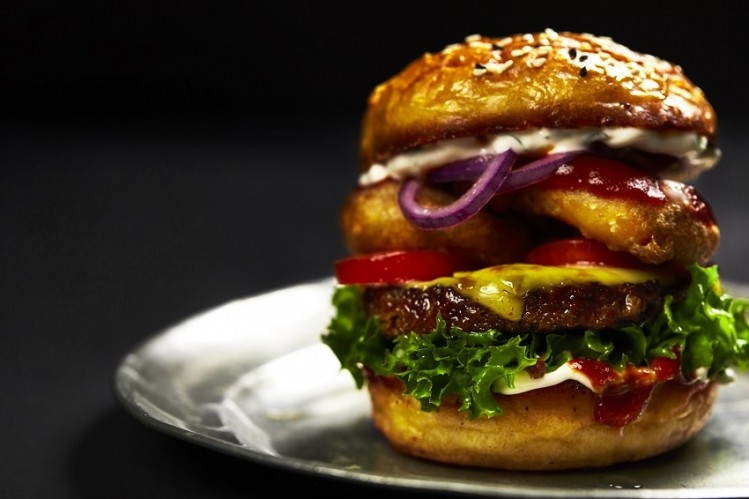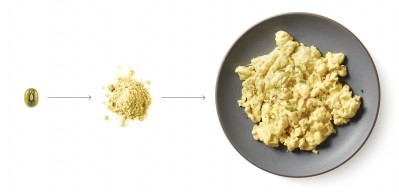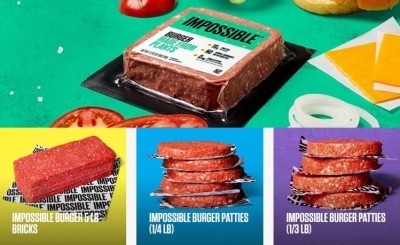LIVEKINDLY Co. builds global plant-based protein empire, transforming incumbent food players into 'force for good'

Foods United, which is backed by Swiss banking firm Blue Horizon, purchased LIVEKINDLY Media and rebranded as LIVEKINDLY co. this week, acquiring two other plant-based brands (The Fry Family Food Co. and LikeMeat) in the process. The company also took an equity stake in pea protein supplier PURIS Holding as part of its strategy to own and operate the entire value chain of production.
"We believe this is absolutely unique.There is nobody that has the media and the products under one movement. There’s nobody that has a portfolio of brands that’s set up and designed for global scale like this," Kees Kruythoff, chairman and CEO of LIVEKINDLY co. told FoodNavigator-USA.
LIVEKINDLY co. has a global team of industry veterans leading the company including Kruythoff (formerly president of Unilever North America, global home care division); Roger Lienhard, board of directors and founder (founder of Blue Horizon Corporation); Mick Van Ettinger, chief marketing officer (formerly of Unilever); Aldo Uva, COO and chief R&D officer (formerly of Nestlé, Firmenich, and Ferrero); and Jodi Monelle, CEO and founder of LIVEKINDLY Media.
"Under the #LIVEKINDLYmovement, we have an awareness that is being created by the LIVEKINDLY media part... and we are selling the best quality, most nutritious, and best-tasting food products under different brands and products," said Kruythoff.
$200m investment into plant-based protein
"We have raised over $200m, which is the biggest founders' round in the history of food," claimed Kruythoff. The money will be put towards investment into its current portfolio and to make future acquisitions to grow the company, he said.
The company's portfolio includes brands that are established in other global markets but new to the US including The Fry Family Food Co. of South Africa, which has just entered the California market with plans for further expansion, and German plant-based chicken brand, LikeMeat.
"LIVEKINDLY came along and it was difficult because it was just us [for 30 years], and as this plant-based movement was growing it became difficult to increase capacity, it had become difficult to raise enough money for marketing. So this was a great opportunity for us to join forces with other brands that shared the same mission," co-founder of The Fry Family Food Co. Tammy Fry told FoodNavigator-USA.
The Fry Family Food Co. offers a variety of vegan chicken alternatives including strips, nuggets, and burgers.
"The products are definitely comparable and maybe even better in terms of taste. We don’t have massive marketing budgets, we’ve relied on people picking up the product, enjoying it, buying it again , and telling friends. For 30 years, that’s how we’ve grown our business," said Fry.
Fry Family Foods was founded in 1991 as a small family business and is one of the first vegan companies worldwide. Now operating in South Africa, the EU, the UK and Australia, the company’s products are available in over 12,000 stores across more than 30 countries.
Over time, the company will launch its own line of plant-based food products under the LIVEKINDLY name, said Kruythoff.
"We need to not only move from animal to plant-based, but from processed to clean label," he said, noting that LikeMeat plain chicken product is made from a handful of ingredients (water, soy protein concentrate, sunflower oil, natural flavoring, sea salt, maltodextrin, and seasoning).
Making plant-based chicken 'the most affordable protein in the world'
LIVEKINDLY co.'s investment into the plant-based protein market will be targeted in scaling production capacity and R&D of plant-based chicken, noted Kruythoff.
In a December 2019 article on the Good Food Institute (GFI) website, Zak Weston, foodservice & supply chain manager at GFI, wrote: "Plant-based companies not only need to enter the market with a tasty and texturally familiar product, but they also need to match an incredibly low price point, something only possible with a production process that can rival conventional chicken’s economies of scale."
Achieving economies of scale is what LIVEKINDLY is undertaking currently, according to Kruythoff.
"We will use the money to be able to really support and expand capacity, rapidly. We will partner with people who have an existing infrastructure to do so," said Kruythoff. For example, LIVEKINDLY has partnered with large poultry companies such as PHW in Europe and RCL Foods in South Africa to produce plant-based chicken to supply to foodservice outlets including KFC restaurants, said Kruythoff.
"We basically are transforming the incumbent food players into being a force for good by shifting their food system into a sustainable food system."
'We need to not only move from animal to plant-based, but from processed to clean label'
While still in its early stages as a global plant-based foods company, Kruythoff said that its approach of partnering with global animal protein companies will eventually help make plant-based chicken "the most affordable protein in the world."
Plant-based meat currently commands a premium price point. The average wholesale and retail price for conventional chicken was $0.80/lb and $1.90/lb in 2019, respectively, according to The National Chicken Council, whereas a 9-ounce bag of Beyond Meat chicken strips [now phased out] costs $5.99 (through Instacart).
However, many plant-based food companies are taking measures to slash price points to make their products more accessible to a broader audience.
"The [plant-based protein] industry by 2040, we believe, will be around 10% of the total meat industry," Kruythoff added, which is roughly the equivalent of $250bn market.

























